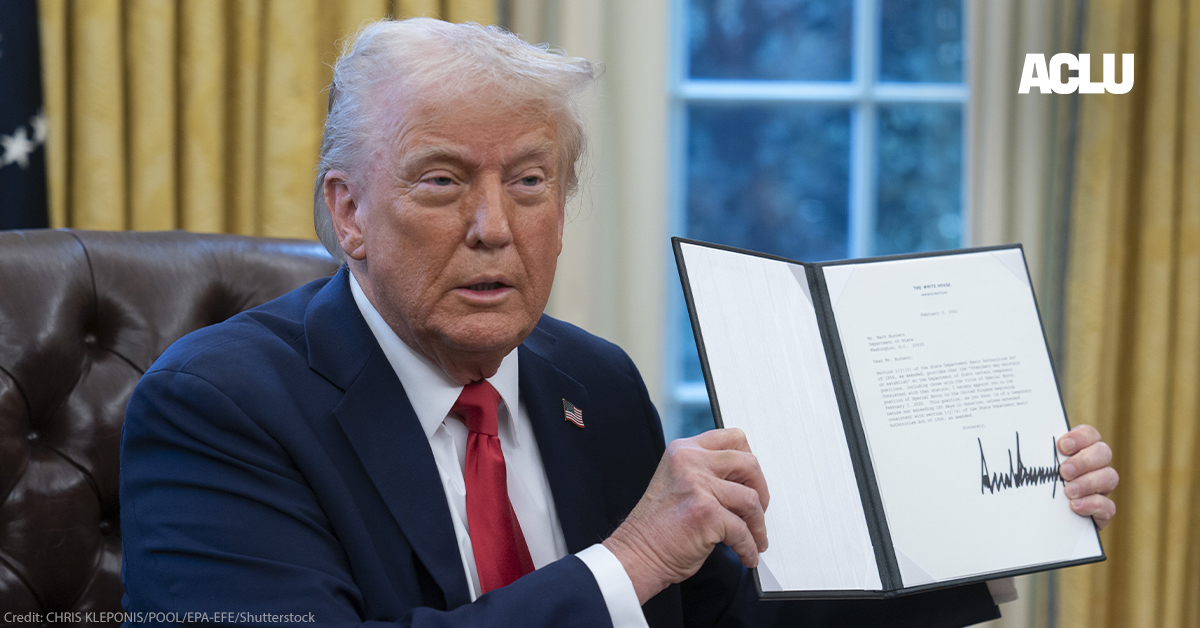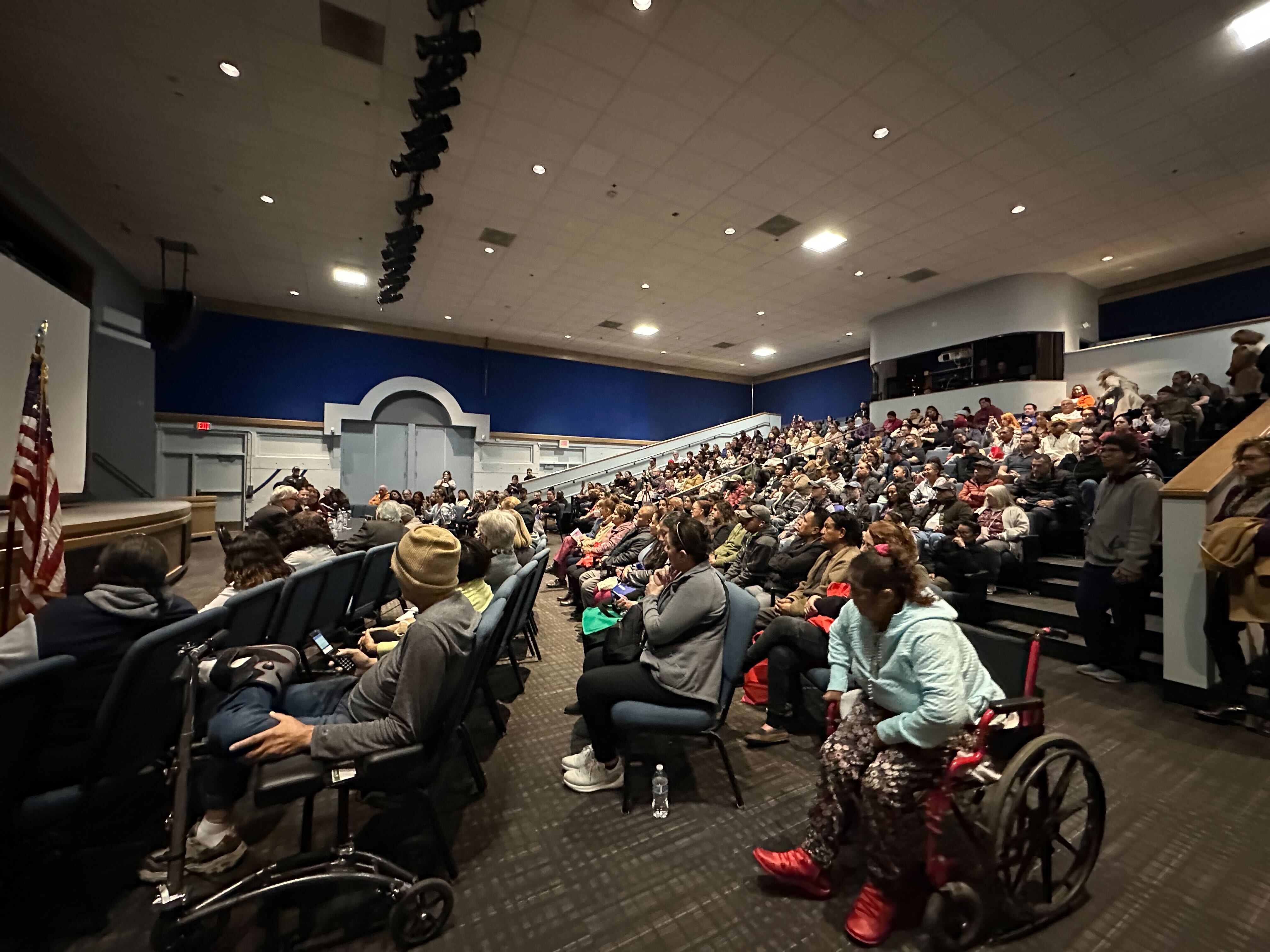By Christopher Peterson, ACLU of Nevada Legal Director
This piece was originally published in the Nevada Current.
When Clark County Sheriff Kevin McMahill recently confirmed that the police department won’t investigate or arrest people simply for being undocumented immigrants, Trump supporters reacted poorly.
“Arrest the sheriff,” wrote Teddy KGB on X, formerly Twitter. Others quickly chimed in: “Arrest him for TREASON.” “Boycott Las Vegas.” “Deport those cops too!”
As many people already know, however, LVMPD wasn’t announcing a new policy. Las Vegas and many other police departments have long said, correctly, that immigration is a federal responsibility.
Having local police hunt down undocumented immigrants drains manpower and money from their real job: Enforcing state laws against violent crime, fraud and all the rest. But what many may not realize is that there are also serious, home-grown legal reasons why Nevada law enforcement agencies should be reluctant to serve as local arms of Trump’s “mass deportation” campaign.
Put simply: They could face lawsuits and big financial penalties for violating civil rights under Nevada’s state constitution.
This has nothing to do with being a “sanctuary city.” Nevada’s police departments are not blocking federal agents from operating or investigating here. But our agencies are required to follow Nevada law even if folks from Washington are not.
Nevada has a long libertarian reverence for personal freedom, spanning everything from gun rights to reproductive rights.
The Cato Institute, a right-leaning libertarian think tank, ranked Nevada as first out of all 50 states on protection of personal freedoms in 2023.
Indeed, the Nevada Supreme Court has strengthened the ability of citizens to sue state and local officials, and obtain financial compensation, for violating their state constitutional rights.
In the context of Trump’s efforts to carry out a mass deportation or any other enforcement activity, Nevada has two key constitutional protections.
The first is Article 1, Section 18 of the Nevada Constitution, which replicates the U.S. Constitution’s prohibition on unreasonable search and seizure. Before entering a home or workplace, for example, enforcement agencies must obtain a court-approved warrant supported by probable cause.
The second protection is Nevada’s equal rights amendment, Article 1, Section 24. That provision declares: “Equality of rights under the law shall not be denied or abridged by this State or any of its political subdivisions on account of race, color, creed, sex, sexual orientation, gender identity or expression, age, disability, ancestry or national origin.” (Emphasis added.)
Even where the state protections look the same as the federal law, Nevada’s protections are stronger for a few reasons.
First, it’s simply easier to sue state and local officials for damages, i.e., money. To be sure, the American Civil Liberties Union has been suing federal agencies for more than a century, and we aren’t about to stop. But the U.S. Supreme Court has made it much more difficult to sue federal government officials for monetary compensation, ruling that Congress needs to explicitly provide for financial remedies.
While we typically ask courts for systemic remedies, like striking down unconstitutional laws or practices, we also know that the threat of a big financial hit goes a long way toward deterring bad government behavior. And the reality is that monetary compensation is often the only thing a person can ask for when their rights have been violated.
In Nevada, all this has become much easier. In 2022, the Nevada Supreme Court ruled in Mack v. Williams that it was entirely permissible to claim damages from a state or local agency for violating a person’s rights under the Nevada Constitution.
In that case, a woman sued the Nevada Department of Corrections for violating her constitutional rights for subjecting her to a warrantless cavity search when she was trying to visit someone in prison.
The Nevada Supreme Court acknowledged that our state constitution bans unreasonable searches and seizures, just like the Fourth Amendment of the U.S. Constitution, and when the state constitution specifically prohibits an activity by state or local agencies, that prohibition is “self-executing” and entitles people to sue for financial compensation without any additional permission from the Legislature. So unlike the United States Constitution, Nevada’s constitution does not need extra laws to protect Nevadans.
The second big protection is that Nevada doesn’t offer “qualified immunity” to state and local officials who violate our state Constitution. Qualified immunity lets government officials off the hook when the right they violate isn’t “clearly established,” even where any idiot could tell that what they were doing likely violated the law. This difference between the state and federal constitutions impacted in Ms. Williams case: the officers received qualified immunity for violating her federal constitutional rights, but they were still on the hook for violating her state constitutional rights.
This increased exposure to lawsuits has major implications for local and state law enforcement here as they consider becoming local arms of I.C.E.
In its first two weeks alone, the Trump administration brazenly flouted the Constitution by trying to revoke birth-right citizenship and by refusing to spend money appropriated by Congress. To carry out its mass deportation mission, the administration will almost certainly invade the privacy of citizens and lawful residents, enter places of work and worship and/or engage in racial profiling — what does an undocumented person “look like,” exactly? All of these activities would violate both constitutions.
If state and local law enforcement casually take direction from I.C.E., they will face serious legal risk. What’s good for the goose probably won’t be good for the gander.
Date
Wednesday, March 5, 2025 - 1:00pmFeatured image



